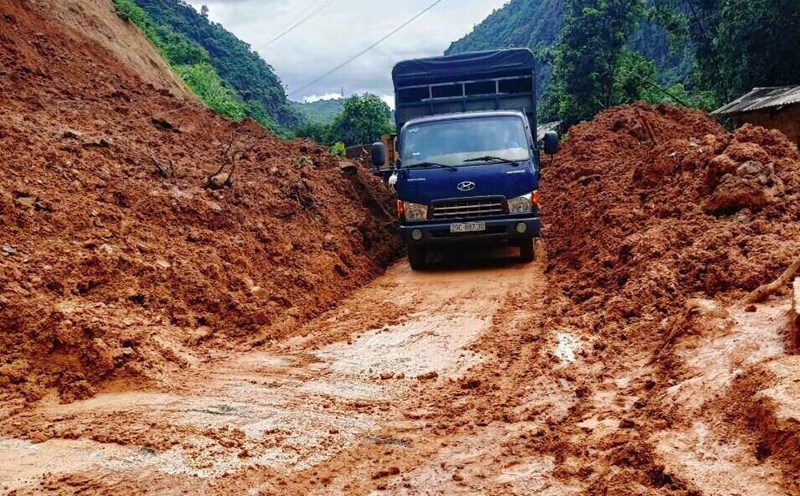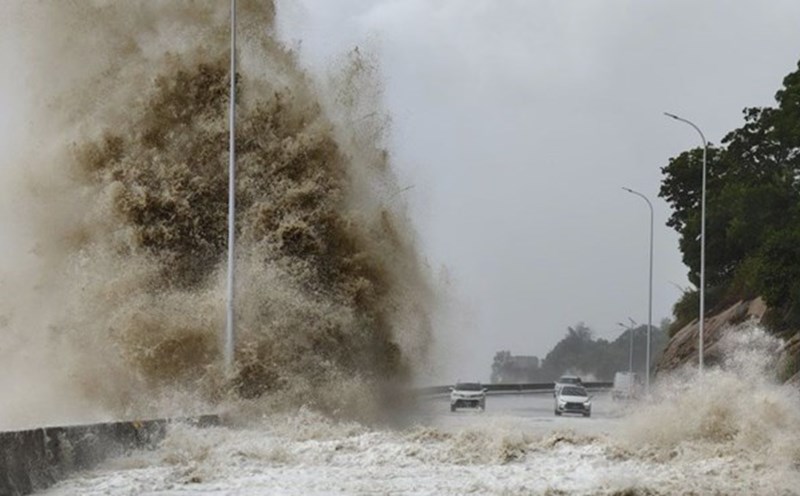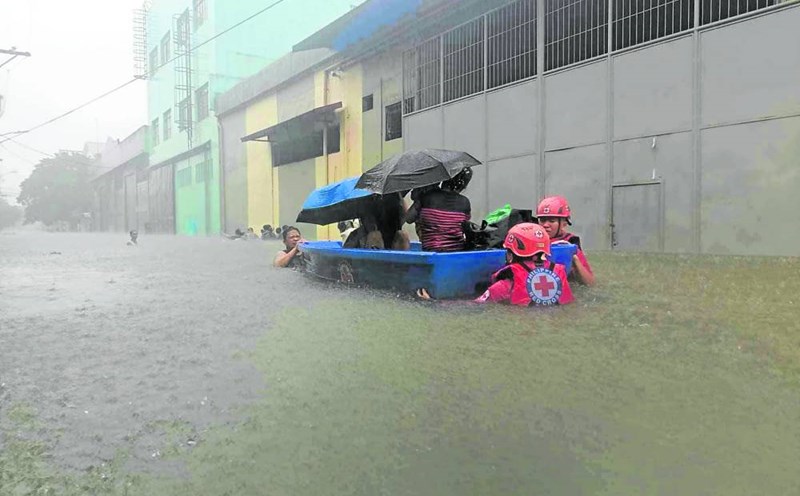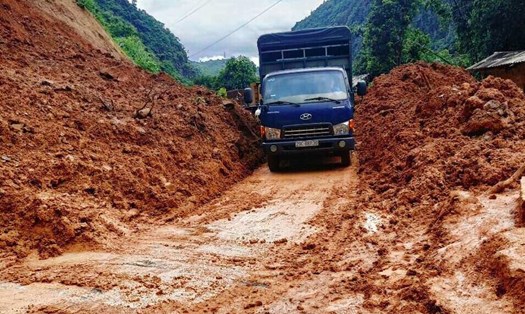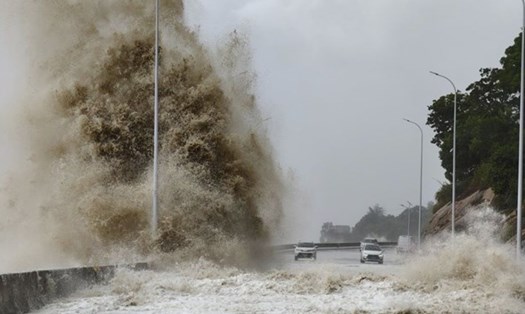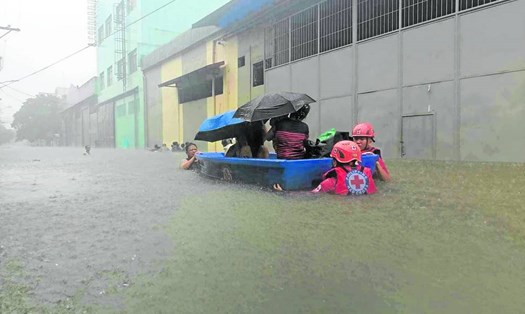June to September is the peak tourist season. However, this period is also when unpredictable storms frequently occur.
To stay safe during unexpected storms, tourists should keep the following in mind.
Stay updated on weather information
Always monitor the latest weather forecasts before departure and throughout the trip. If bad weather is detected, tourists should consider adjusting their itinerary. Canceling the trip, changing the destination, or postponing the trip are safe choices.
Use specialized travel weather apps to receive timely alerts. Some popular travel weather monitoring channels include the fanpage and website of the National Center for Hydro-Meteorological Forecasting (nchmf), and the Weather app available on smartphones...
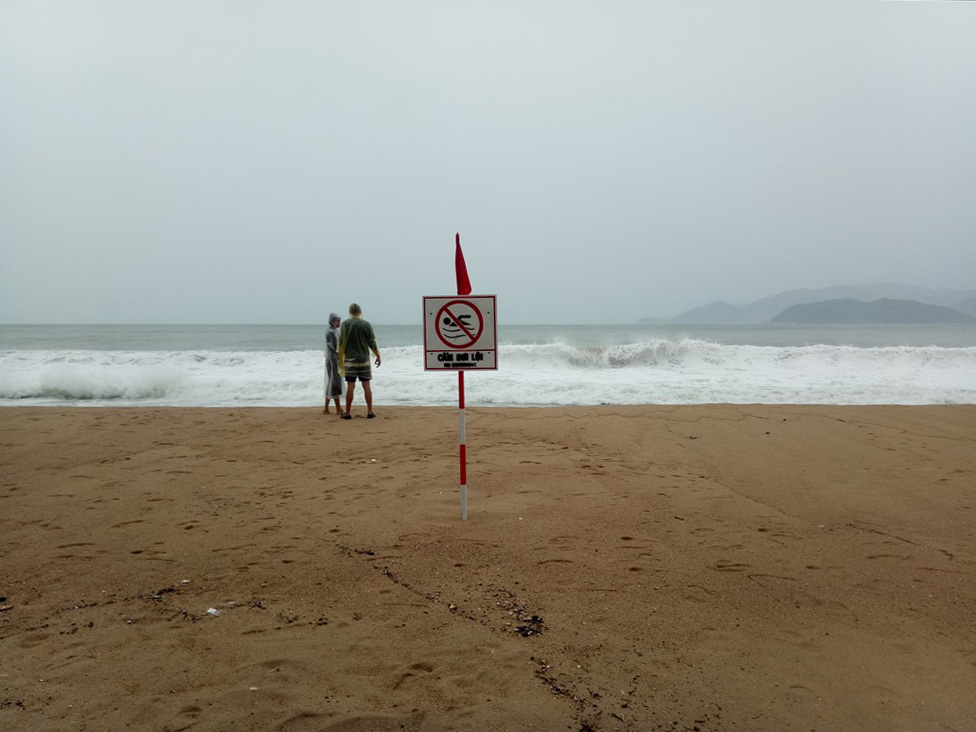
Prepare your vehicle
If tourists are traveling by personal vehicle, they should thoroughly check the vehicle before departure to avoid breakdowns in bad weather conditions.
Fill up the gas tank and check the main fluids and solutions in the car, such as engine oil, transmission oil, brake fluid, power steering fluid, coolant, and windshield washer fluid...
Ensure the spare tire, jack, and wheel wrench are ready. Check if the car battery has enough power to withstand harsh weather.
Travel safely
During the journey from home to the tourist destination, or between tourist spots, tourists should depart early to have time to drive slowly and carefully.
Do not return to the accommodation late, in case of bad weather in the evening, especially at deserted tourist spots far from the center.
Consider road conditions (rain, wind, visibility). Do not travel in bad weather, especially on mountainous or dangerous roads.
Reduce speed according to weather conditions. Brake early and increase the distance from the vehicle in front.
Pay attention to maintenance and rescue vehicles, and save necessary rescue phone numbers before departure.
In case of an emergency rescue situation, tourists can call for help at the following two phone numbers: 114 - Fire and rescue emergency number and 112 – Emergency assistance and search and rescue number.
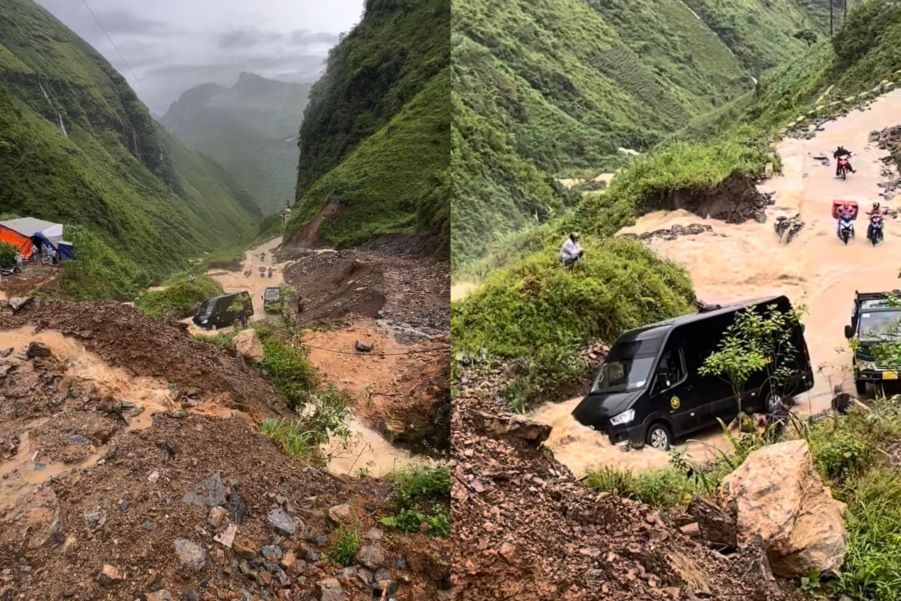
Prepare for emergencies
Tourists should bring essential items such as a phone, backup charger, food, water, and warm clothes.
For specific situations, there should be corresponding responses:
Tornado: Move to the lowest floor, stay away from windows, and find a shelter with a sturdy structure.
Storm: Stay in a high area or in a windowless room on the upper floor, avoid standing near trees. If trapped in a car, stay in the car, call for emergency rescue, lower the window about 10cm, or turn off the engine to avoid carbon monoxide poisoning.
Follow local government regulations
Pay attention to travel restrictions, continuously update local authority directives and notices.
Learn about the evacuation procedures of the accommodation.
If not necessary, avoid going out in bad weather conditions.
By remembering and following these notes, tourists can minimize risks and ensure safety when traveling during the stormy season.

